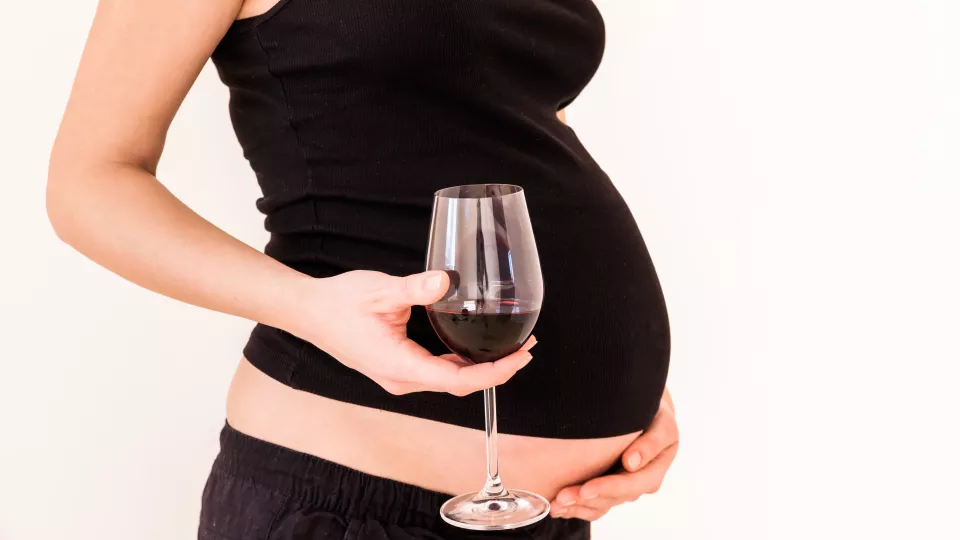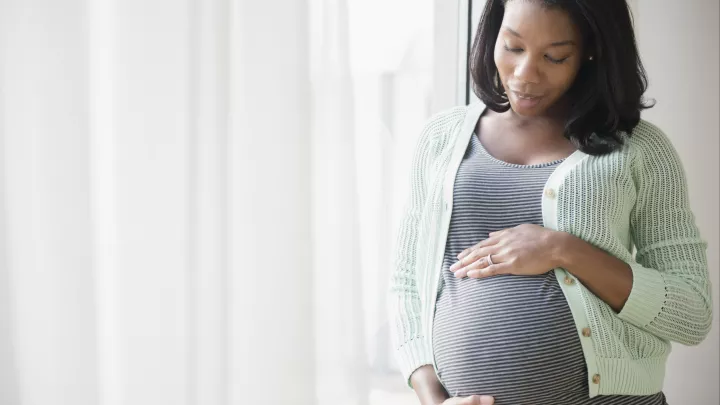
Can I Drink While Pregnant? A Brain Development Expert Shares the Latest Science
The question of whether it’s safe to drink alcohol while pregnant has been a subject of debate for years. Pregnant women face differing opinions among friends and family, online forums, and even health care providers.
So, what does current science say?
Based on the latest research, the answer is definitely no for large quantities or binge drinking. The effects of small amounts are still unknown, says Vidya Rajagopalan, PhD. According to her, any alcohol consumption carries some risk. Dr. Rajagopalan is a Principal Investigator at The Saban Research Institute of Children’s Hospital Los Angeles, and Assistant Professor at the Keck School of Medicine of USC. Her research includes studying the development of a baby’s brain in utero using advanced MRI imaging technology.
She is also participating in the National Institutes of Health (NIH) HEALthy Brain and Child Development (HBCD) Study. “A large focus of the study is the use of alcohol and substances in pregnancies,” she says.
Alcohol’s known effects on fetal development

According to Dr. Rajagopalan, studies show that drinking large quantities of alcohol while pregnant does affect a baby’s health.
“When pregnant women drink a lot of alcohol, they are at higher risk of having children with neurodevelopmental problems,” she says. “The science shows that fetal alcohol spectrum disorders occur with heavy or binge drinking.”
Fetal alcohol spectrum disorders (FASD) include a range of symptoms, including:
- Brain and facial deformities
- Challenges with eating and sleeping
- Hearing and vision issues
- Low birth weight
Children with FASD are more likely to have cognitive and behavioral issues. They may also have a higher risk of developing alcohol or substance abuse problems at some point in their lives.
No safe limit currently exists
While the research on heavy drinking during pregnancy is clear, the effect of small quantities on a baby’s development remains unknown.
“The general guideline of national organizations like the CDC and the American College of Obstetrics and Gynecology is that there is no safe limit,” says Dr. Rajagopalan. “There is no accepted scientific evidence showing that low levels of drinking are safe.”
One reason is that running research studies requiring pregnant women to drink alcohol isn’t feasible or ethical. “We can’t run tests that could potentially harm a baby or mother,” she notes.
Another reason is that alcohol is just one of many factors that contribute to a baby’s development, she says. Genetic factors, the mother’s physical and mental health and environmental concerns must also be taken into account.
Discuss the risks of drinking while pregnant with a health provider
Dr. Rajagopalan says a pregnant mother should understand all of the risks before deciding whether or not to drink.
“We don’t have a scientific way of proving that one glass of wine is OK,” she says. “I encourage women to discuss the risks with their provider and hold their provider responsible for giving them reliable information.”
Dr. Rajagopalan notes that multigenerational families may have customs around pregnancy that can be addressed together. “Because of the type of research I do, quite often I’ll have pregnant women bring their mothers to my research group,” she says. “They’ll have questions about pregnancy and fetal development.” She suggests pregnant women discuss any cultural practices that include alcohol with their health provider.


